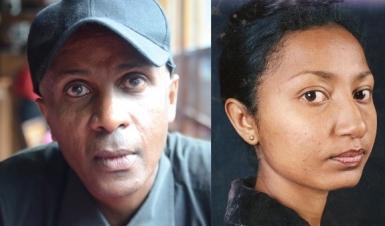Joseph Pulitzer III of the Pulitzer Centre for Crisis Reporting once said,
“Not only will we report the day’s news, but we will illuminate dark places and, with a deep sense of responsibility, interpret these troubled times.”
For decades, journalists around the world take to the task of illuminating dark places so that we can see our world not just in one, but different lights. Having dissenting view is important because the quest for truth must not lie in the privilege of one individual, but all human being.
The New York-based Committee to Protect Journalists (CPJ) reported that more than 1017 journalists have been killed since 1992. Meantime, 232 journalists have been jailed worldwide in 2012.
Finding the truth and writing about it can be dangerous business in many parts of the world, including Ethiopia.
Since the Arab Spring, the Ethiopian government has used anti-terrorism law to arrest and imprison political dissidents. According to CPJ, about 150 Ethiopian journalists were living in exile in 2012, more than any other country in the world. More than 14 news outlets have been shut down.
Those who stayed and continue to hold the government accountable have been sentenced to prison under trumped up charges of terrorism.
Award-winning journalists Eskinder Nega and Reeyot Alemu are both serving a prison sentence of 18 and five years respectively at the Kaliti prison in the outskirts of Addis Ababa.
Nega has been arrested on seven previous occasions for his bold reporting, often critical of former Ethiopian Prime Minister Meles Zenawi. He is known for his report on the violent crackdown on public protest following a dispute on the parliamentary elections in 2006. Nearly 200 people were reportedly killed in the violence.
Alemu writes on government policy and spending, the lack of an independent media and the mistreatment of minorities.
Nege in his Letter from Ethiopia’s Gulag wrote, “I am jailed, with around 200 other inmates, in a wide hall that looks like a warehouse. For all of us, there are only three toilets. Most of the inmates sleep on the floor, which has never been swept. About 1,000 prisoners share the small open space here at Kaliti Prison. One can guess our fate if a communicable disease breaks out.”
It has been reported that Alemu has suffered mistreatment while in prison and denied family visits. This year whilst in prison, she received the World Press Freedom Award.
The Media Legal Defence Initiative (MLDF) is asking the African Commission and Court of Human Rights to declare the conviction of Eskinder Nega and Reeyot Alemu a breach of their human rights and for the Ethiopian government to stop the abuse of anti-terror laws to silence journalists.
Significant funding is needed to support the work of MLDF’s legal team. As such, a fundraising campaign through Indie Voices, a new crowd-funding platform for independent media has been set up to raise at least US$20,000 by 19 January 2014.
You can be part of this campaign by supporting MLDF’s fundraising campaign here.


Dear Lord Bobo,
Thank you so much for posting this! Thanks to you and your readers generosity we are now able to take this case forward and have petitioned the African Commission on Human and Peoples' Rights – the first step in the international legal proceedings. We hope to be able to report Eskinder and Reeyot's release from prison sooner rather than later.
Best wishes to you and your minions,
Peter – Media Legal Defence Initiative (MLDI)
Nice!